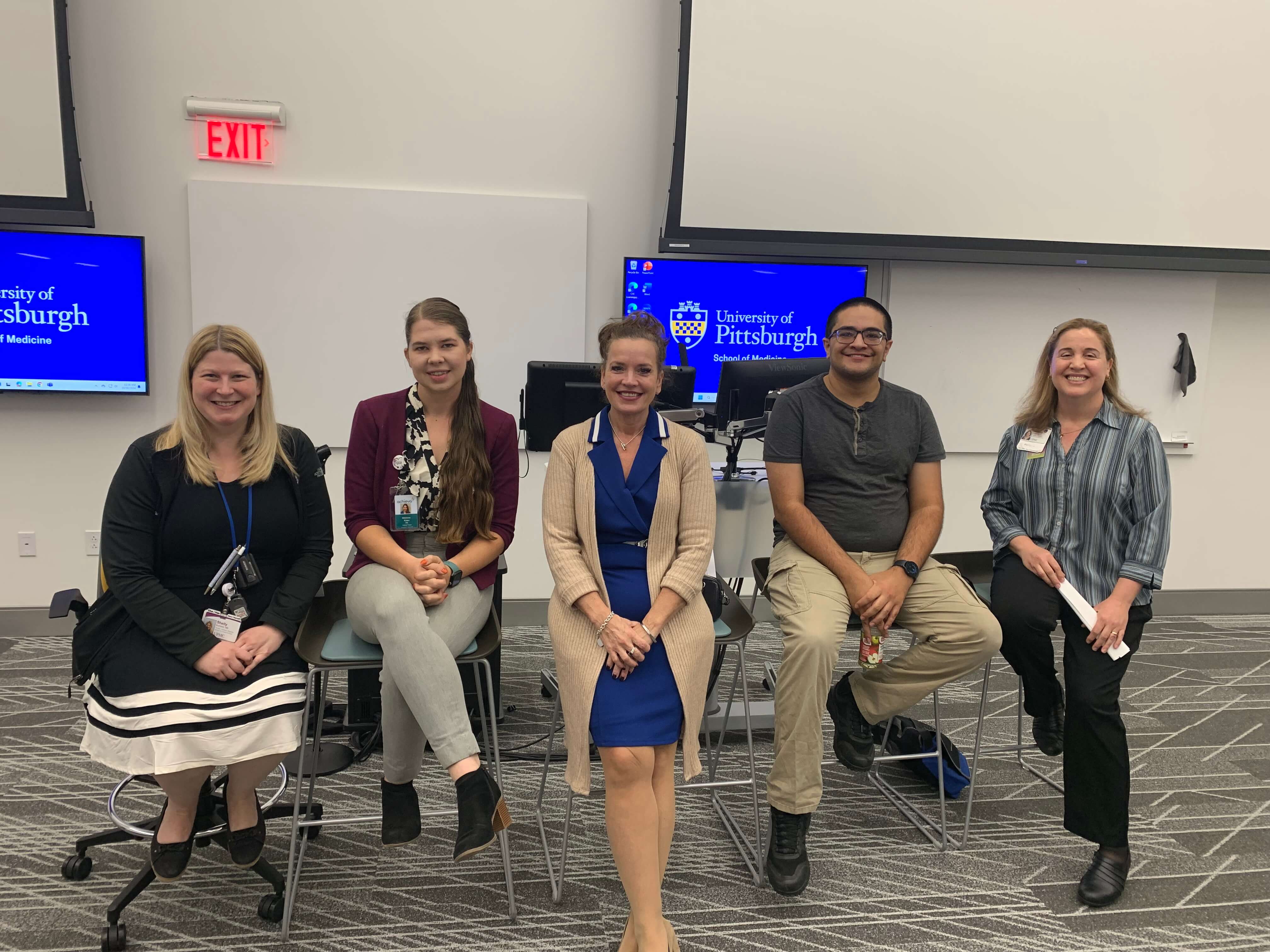News
Achieva Partners with Pitt Community Alliance Program

From Carol Miller, Director of Clinical Services, Achieva Support
Over the past year, Achieva Support’s Clinical team has worked with a first-year medical student, Rohit Aita, through the University of Pittsburgh School of Medicine Community Alliance Program (CAP). Rohit and the Clinical Team have been working diligently throughout the year on a project to create a fact sheet that encourages medical professionals to presume the competence of a person with a disability during medical appointments. During our work with Rohit, he asked Dr. Shelly Kucherer, Assistant Professor of Psychiatry, Associate Medical Director, Center for Autism and Developmental Disorders Adult Outpatient Clinic and University of Pittsburgh School of Medicine, Western Psychiatric Hospital, if she would be interested in learning more about Achieva’s work through a panel of people to discuss neurodevelopmental disorders. Dr. Kucherer eagerly welcomed the opportunity and worked with Achieva on providing a cross-organizational initiative with Achieva’s Clinical Team, the Community Supported Living program, and the Autism Connection of PA.
On October 30, 2024, a discussion panel was held on the University of Pittsburgh’s main campus, with close to 100 University of Pittsburgh Medical Students in attendance. The panel focused on providing equity in healthcare to persons with Neurodevelopmental Disorders.
The panel was hosted by Dr. Shelly Kucherer, Assistant Professor of Psychiatry, Associate Medical Director at the Center for Autism and Developmental Disorders Adult Outpatient Clinic, University of Pittsburgh School of Medicine, Western Psychiatric Hospital. Dr. Kucherer started off the panel by saying to the medical students in attendance: “Having a neurodevelopmental disorder isn’t something that people ‘outgrow’ by any stretch of the imagination; it’s a lifelong condition- so it’s important to think of this as across the lifespan.”
Panel members representing Achieva provided detailed information and insight from personal experiences on such topics as what waiver funding entails and how difficult it is at times to advocate for persons with IDD/Autism to obtain the services they are desperately in need of. The panel talked about the medical complexities of a lot of patients with neurodevelopmental disorders resulting in more complex treatment plans, how a person’s true medical problems can look like behavioral changes, and how doctors need to make sure they understand a patient’s baseline and understand what changes may look like for that patient, to provide the best treatment options to help them. The discussion also ensued around how medical professionals can assist those with IDD/A when coming to a medical appointment or needing to be assessed in the emergency room and “meeting people where they are at” by providing whatever additional support may be needed to help successfully treat a person while helping to allay their fears.